Deeper Project Based Learning
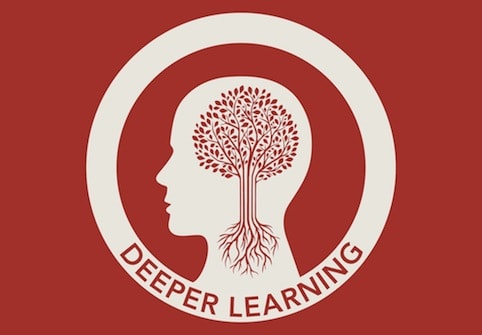
Project-based learning is a great way to engage students in interest-based activities but sometimes that’s all it is. Good projects are deep not thin, rigorous not easy. Good schools help students frame compelling questions and use standards-aligned rubric assessments.
We’ve been visiting and interviewing schools that provoke deeper learning. They ask students to think and struggle. Larry Rosenstock, High Tech High, likes students (and teachers) to experience a bit of perplexity often resolved in a focus on production of high quality products.
We’ve summarized How Digital Learning Contributes to Deeper Learning and think tech-enabled project-based learning holds great promise to boost college and career preparation. We found a couple schools that are particularly good examples.
Casco Bay. Principal Derek Pierce said, “We challenge and support our students to become college-ready through our 3Rs: Rigor, Relevance, and Relationships.” Casco Bay High School in Portland Maine is an Expeditionary Learning school which keeps the school’s goals “clear, ambitious and essential: a community of learners where the wonderful in each student is known and nurtured, where learning is catalyzed by student inquiry and academic adventure, and where every graduate is prepared for college, work, and citizenship.”
Casco juniors engage in a long term interdisciplinary project that results in demonstration of learning. Last year, they visited the coalfields of West Virginia. The culmination of this Junior Journey was a multimedia presentation of oral histories.
“Learning expeditions, a central curricular structure at Casco Bay, are founded on the belief that students should and can solve real-world problems while mastering skills and content,” said Pierce. “The projects within each learning expedition require students to think critically.”
“Communicating ideas is a core component of literacy across the disciplines,” said Pierce. “For example, science classes have a ‘scientific communication’ course standard,” and all the learning expeditions contain strong writing and presentation elements, each of which uses rubrics to foster strong communication skills.
Learning how to learn means, from an Expeditionary Learning perspective, teaching students to be “meta-cognitive”. Reflection and revision, as well as self-assessment against learning targets, are core practices of the Expeditionary Learning design. In each class, teachers use assessment-for-learning practices on a daily basis.
DSST. Bill Kurtz asks two big questions, “What’s your view of the human condition?” and “What do people want?” He suggests that most people want to be connected to a bigger story and they want to be affirmed for their unique gifts and talents.
Kurtz is founder of Denver School of Science and Technology, now DSST: Stapleton High School, the anchor of a Denver STEM network. DSST uses Big History Project, a compelling history of how we got here, as a 9th grade block.
Big History “covers the history of the universe, the planet, and human history,” said teacher Jim Stephens, noting that problem solving is the core of their innovative 9th grade curriculum. “Students have to have an understanding of how the earth works in order to decide how humans have interacted with it. They need to look at the history of the problem, and solutions that have been tried or suggested already, before they can try to solve it. This is problem-based learning.”
Students may “find it hard at first, but once they start to get it, they really get it, and they start to make connections themselves–often ones their teachers didn’t think of,” said Stephens.
Big History has been the spark for so many other initiatives. DSST is introducing a capstone project for the 10th graders to allow them to concentrate a good amount of time on a subject they really care about.
Odyssey. Also in Denver is the Odyssey School, and Expeditionary Learning school. Executive Director Marcia Fulton explained that Odyssey strives to “harnesses children’s natural passion to learn and helps them develop the curiosity, knowledge, skills, and personal qualities they need for successful adulthood.”
The school is founded on the philosophy that children learn best through personal, direct experiences designed to take advantage of their natural curiosity about the world. Fulton explained that Expeditionary Learning “harnesses children’s natural passion to learn and helps them develop the curiosity, knowledge, skills, and personal qualities they need for successful adulthood.”
The expeditions that are central to EL are planned backward from guiding questions that require critical thinking. Expeditions “go in depth on important subjects and topics,” said Fulton. Students are required to complete significant research and writing and, in order to complete their work, they must address multiple perspectives and form their own opinions regarding politically charged topics such as social progress, access for the disabled, pollution and waste disposal, and educational equity.
Lessons. High Tech High, Casco, DSST, Odyssey and other schools we’ve studied suggest that to avoid low-level activities and promote deeper learning projects it is helpful to:
-
Pick compelling subjects: help students frame big but specific questions;
-
Set rigorous goals: outline high quality products that will be produced and judged with standards-based rubrics
-
Make the projects long enough to go in depth; build in milestones to keep teams on track.
-
Ask students to publish their work and create venues for presentations of learning to the school community.
This blog is brought to you by The Nellie Mae Education Foundation as part of a series on blended humanities. For more stayed tuned for the Getting Smart on Blending Middle Grade Humanities bundle and see the other posts in this series:



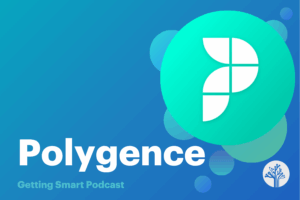
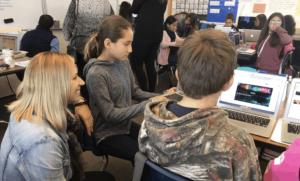
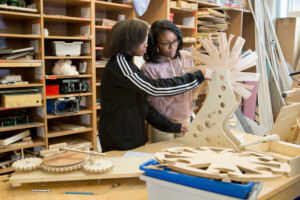
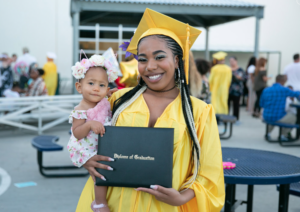

Mary Beth Cunat
Collaborative authentic work that honors the complexity and ambiguity of learning in the real world. Great stuff!
Patrick
Excellent. I'm inspired to read what others are doing in the area of project-based learning, especially encouraging critical thinking and meta-cognitive skills. As a designer and facilitator of collaborative project-based learning environments at the graduate level in Canada, I can honestly tell you that you are right on. The kinds of competencies that each school and program featured in this article are developing, are in tune with what is being demanded in the 'real' world. I encourage more dialogue as well with the communities of practice that each learner wants to aim to graduate into. I have learned so much from ongoing conversations with colleagues in the digital media industry in particular and there is nothing holding us back from integrating their needs into our learning designs.